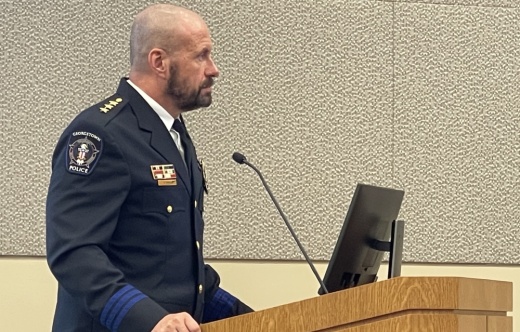In a public safety update to the Georgetown City Council on Jan. 24, Police Chief Cory Tchida said the department has experienced an increase in calls related to mental health incidents over the last four years.
In 2022, the Georgetown Police Department received 654 mental health calls for service, compared to 608 in 2021, 565 in 2020 and 314 in 2019. Tchida said the number of calls last year could be “misleading,” because it only includes calls where officers knew before arriving to a scene they were responding to an individual in a mental health crisis.
“This doesn’t really even capture the number of calls where we’re dispatched to a domestic disturbance, and the whole reason the domestic disturbance is occurring is because someone is in a mental health crisis,” he said. “We’re not even talking about those. So this is a misleading number to some degree and is probably much larger.”
Tchida said the council can expect funding requests this year to bring on officers dedicated to handling mental health service calls. He said having a such a unit would provide an advantage because of the “comorbid factors that tend to exist within the homeless population.”
District 5 Councilor Kevin Pitts said it would be a good investment for the city and police department to implement a mental health unit.
Additionally, the city saw 1,088 Part 1 crimes in 2022, up from 996 in 2021. Part 1 offenses include a wide variety of crimes—from murder to larceny. Of last year’s Part 1 crimes, 89% were property crimes.
A significant portion of those offenses were vehicle burglaries, Tchida said. Out of the 240 vehicles burglarized, 110 firearms were stolen out of them, which the department is finding in other areas of the state.
“We’ve recovered them on the streets of Houston; we’ve recovered them on streets of Austin,” Tchida said.
With 10 vacancies in the department, the GPD’s roster is at 94 of its 104 budgeted positions. However, with eight officers on modified duty due to injury or on leave, and 10 officers still in the training pipeline, Tchida said the GPD’s operational effectiveness is at 73%. That measurement will improve, he said, once the new hires are trained, which can take more than a year before they are able to patrol by themselves.
“If we get these people through the training pipeline and get these people back from injury, we’ll be in pretty good shape,” Tchida said.





